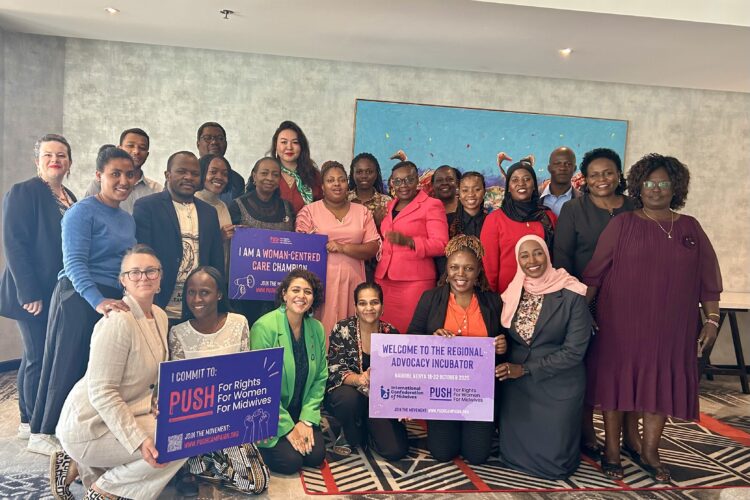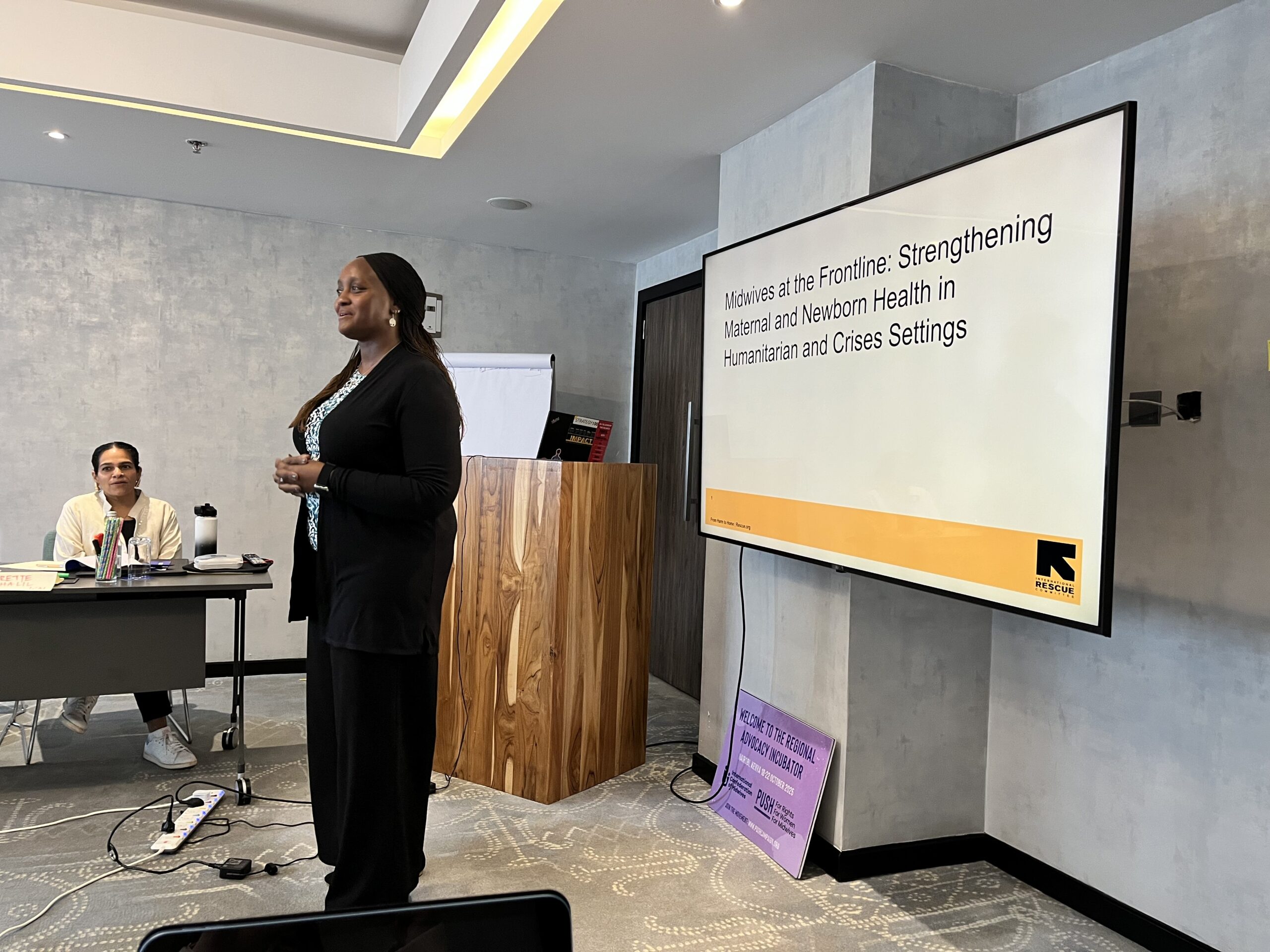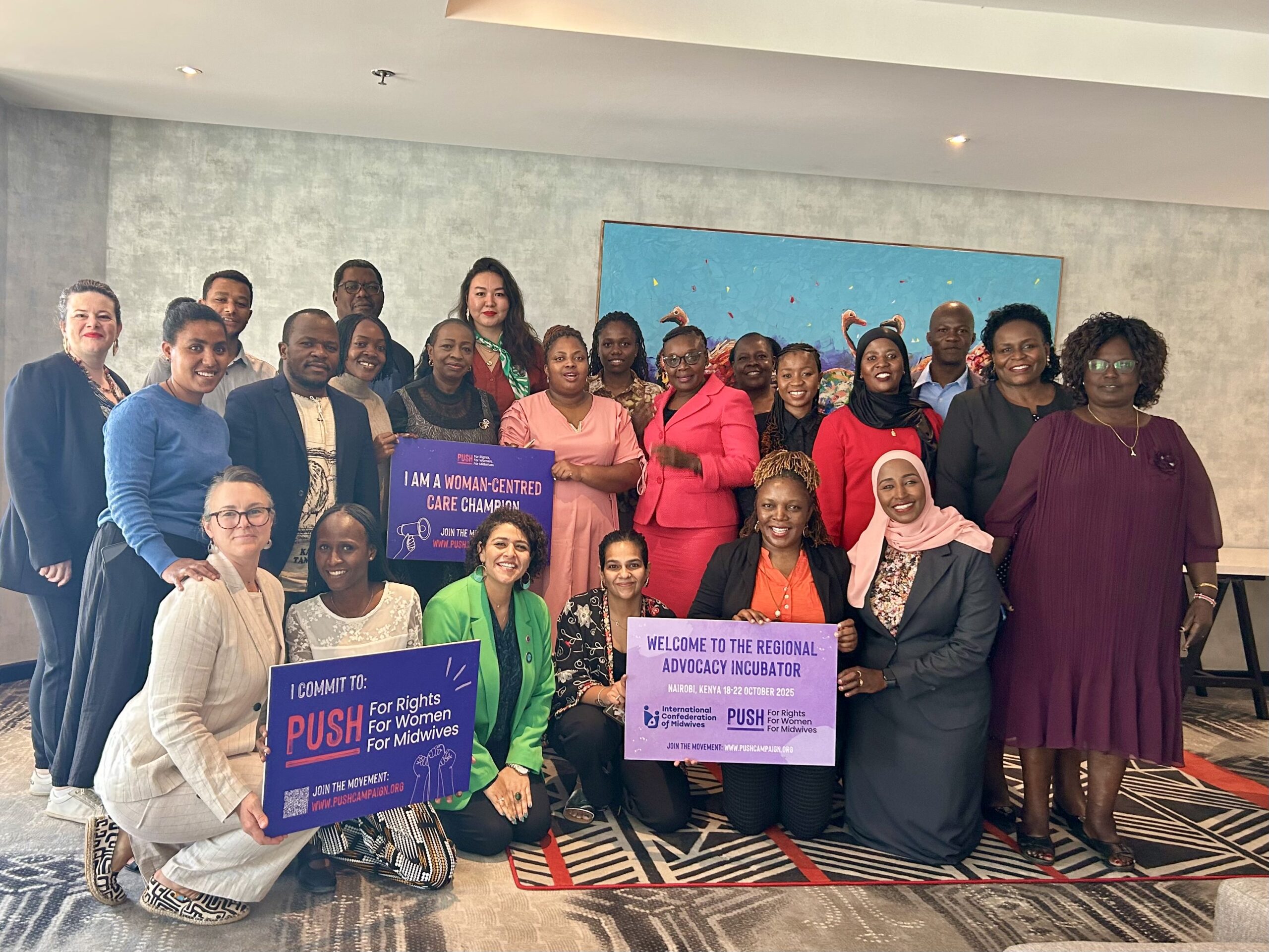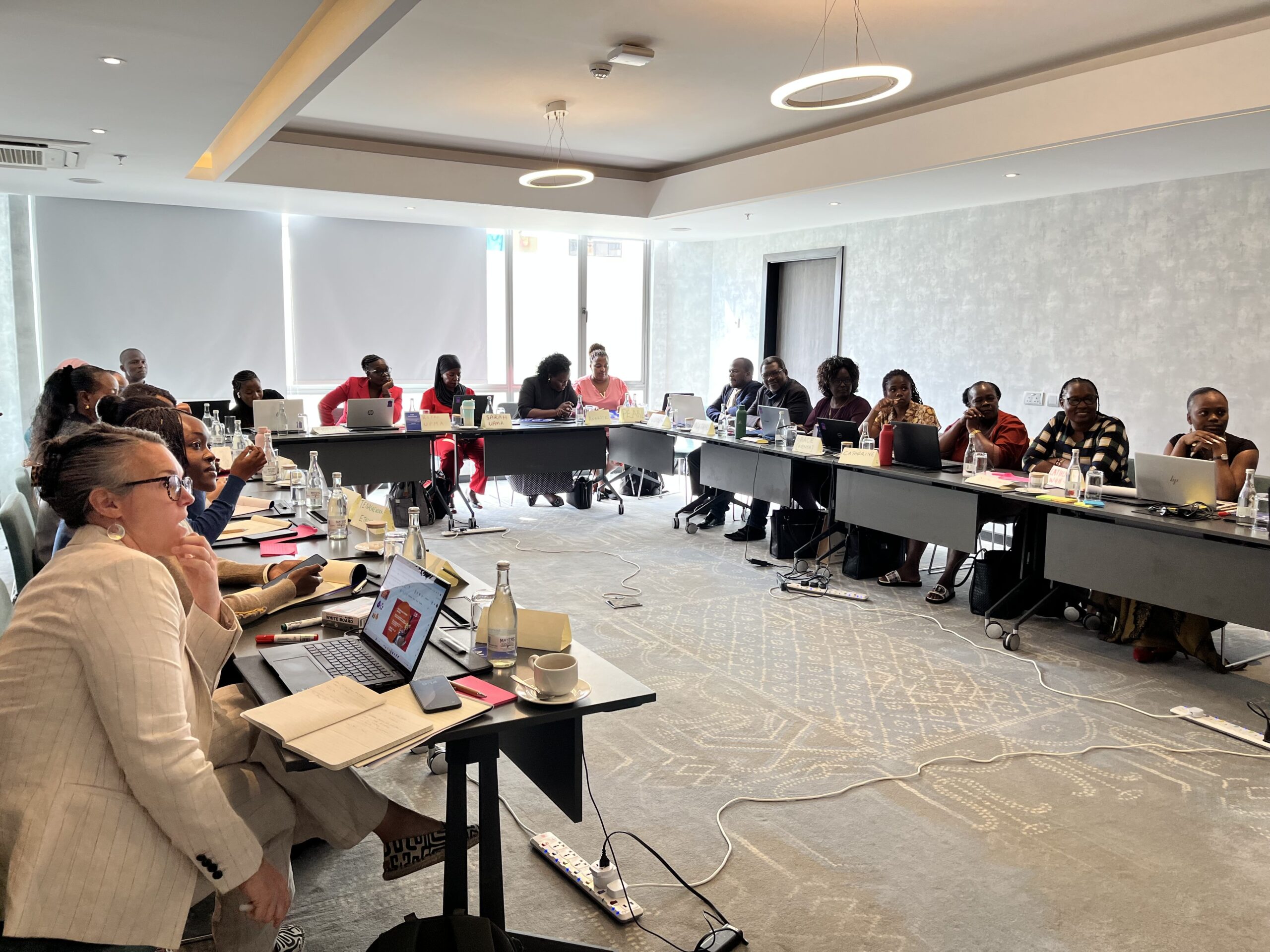Launching ICM’s First Regional Advocacy Incubator in East Africa

In October, ICM brought together midwives’ associations (MAs) from five countries to pilot the first Regional Advocacy Incubator.
Midwives are essential to achieving global targets on maternal and newborn health, family planning, and gender equality. Yet, midwives in many countries face barriers to leadership, resources, and policy influence. The International Confederation of Midwives (ICM) hosted its first the Regional Advocacy Incubator, from 19 to 22 October 2025 in Nairobi.
We know that midwives are the key drivers of improved SRMNAH outcomes – but to do this, MAs need to be able to advocate for and support the profession and women’s right to respectful, woman-centred care.
This Incubator brought together midwives’ association leaders from Kenya, Uganda, Ethiopia, Malawi, and Tanzania to exchange knowledge and experiences, build and sharpen advocacy skills, and gain insights to implement and expand their national midwifery advocacy plans. The Incubator ensures that national midwives’ associations are equipped to drive advocacy, amplify women and midwives’ voices, and connect local priorities to global agendas at the right time.
“The incubator showed us that our regional strength is our biggest resource.” – Tanzania Midwives Association (TAMA)
Strengthening Coalitions and Sustaining Action
The Incubator brought together six midwives’ associations (MAs) from the five countries with two MAs representing Uganda. It built on ICM’s country engagement framework and MAs’ advocacy action plans, momentum and methodology of ICM’s PUSH Campaign. This first cycle of the Regional Advocacy Incubator was designed as a pilot, which we hope to run in other regions.
The workshop focused on developing advocacy plans, stakeholder power mapping, policy influencing, and pitching techniques.
By the end of the workshop, each MA would have a peer-reviewed and revised, costed national advocacy workplans including resource mobilisation, risk assessment, monitoring, evaluation and learning. One of the strongest and most impactful parts of this incubator was the space for peer-to-peer exchange; sharing experiences from neighboring countries, comparing contexts and challenges among the regional counterparts, learning from their successes and failures, and identifying synergies and opportunities for collaborations, including joint fundraising.

As representatives from the Midwives’ Association of Kenya (MAK) noted, “This incubator has shown us that learning from each other is more powerful than any manual.”
The Incubator applied the PUSH Campaign methodology to promote coalition-building and multi-sectoral advocacy and collaboration. The Incubator welcomed guest lectures from key global and regional partners including: UNFPA, Gates Foundation, International Rescue Committee, and the Aka Khan University Center for Excellent on Women’s Health. Additionally, one full day of this venture, the focus was around partnerships, advocacy, and building multi-disciplinary movements pushing for rights, for women, and for midwives. Four civil society representatives and PUSH Campaign champions were invited to present how they see partnership with midwives and MAs will enhance their advocacy. We welcomed speakers from the Reproductive Health Network of Kenya (the national IPPF affiliate), STADA Kenya, Women in Global Health Kenya, and HENNET (the national host for PMNCH’s CAAP).
This was clear from a comment made by the Association of Malawian Midwives (AMAMI), “Some organisations we never thought of collaborating with could actually advance our agenda.”
Post-event activities will include forward funding for advocacy plan implementation and ongoing micro-learning sessions to reinforce skills and maintain engagement.
Lasting Impact
The Incubator has laid the groundwork for a sustainable regional advocacy network, enhancing midwives’ visibility and influence while creating a replicable model for advocacy movement-building. Participants described the Incubator, as “more powerful than any manual,” highlighted how peer learning and shared regional experience are reshaping approaches to SRMNAH. One participant from the Uganda Private Midwives’ Association (UPMA) commented, “When funding comes, it rarely comes to one country—so we must be ready as a region.”
MAs shared learnings related to overcoming resource constraints, mobilising partnerships, and positioning midwives as leaders—not just responders—within health systems and crisis response planning. As Mikaela Hildebrand, Team Lead, Maternal and Newborn Health, UNFPA noted, “We see midwives’ associations and UNFPA country offices as two pieces of the same puzzle.”
MAs also described the need for strategic advocacy backed by evidence, better donor engagement, and investment in institutional capacity. Participants stressed that sustainable impact requires MAs to be recognised as equal partners. A representative from the National Midwives Association of Uganda (NMAU) stated that collaborative action must extend beyond borders, “When funding comes, it rarely comes to one country; so, we must be ready as a region.”
The incubator model, which facilitated the exchange, was praised for its participatory design and emphasis on peer mentorship. Participants called for continued platforms for learning, regional consortium-building, and the development of shared technical resources.
“Now we see ourselves not just as responders, but as leaders.” – Ethiopian Midwives’ Association (EMwA)

The world needs One Million More Midwives
Sign the petition and help us collect one million signatures to demand one million more midwives — and the investments needed to make it happen.

